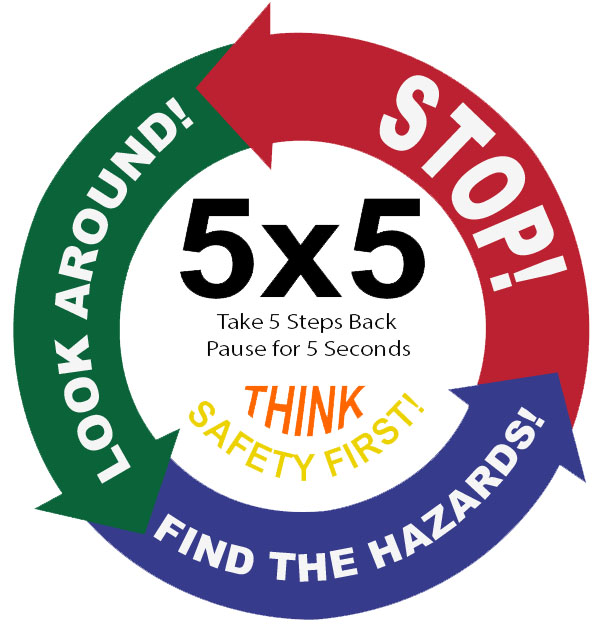Title Page
-
Conducted on
-
Prepared by
-
Location
-
Employee Name
-
Period of Evaluation
-
SUPERVISOR #1 Name, Telephone #
-
SUPERVISOR #2 Name, Telephone #
-
This checklist is intended to assist a supervisor in referring a person for drug testing. Has the employee manifested any of the following behaviors? Indicate (D) if documentation exists
-
This checklist only provides possible indicators of substance use or abuse. It is not intended to be an exclusive list. Furthermore, an affirmative response to one or more questions does not necessarily indicate that reasonable suspicion exists to test an employee. Reasonable suspicion testing based solely on the use of this checklist is not endorsed. Reasonable suspicion determination can only be made by supervisory personnel in a given situation.
A. QUALITY AND QUANTITY OF WORK
-
1. Clear refusal to do assigned tasks
-
2. Significant increase in errors
-
3. Repeated errors in spite of increased guidance
-
4. Reduced quantity of work
-
5. Inconsistent, “up and down” quantity/quality of work
-
6. Behavior that disrupts work flow
-
7. Procrastination on significant decisions or tasks
-
8. More than usual supervision necessary
-
9. Frequent, unsupported explanations for poor work performance
-
10. Noticeable change in written or verbal communication
-
11. Other (please specify)
B. INTERPERSONAL WORK RELATIONSHIPS
-
1. Significant change in relations with co-workers, supervisors, etc
-
2. Frequent or intense arguments
-
3. Verbal abusiveness
-
4. Physical abusiveness
-
5. Persistently withdrawn or less involved with people
-
6. Intentional avoidance of supervisor
-
7. Expressions of frustration or discontent
-
8. Change in frequency or nature of complaints
-
9. Complaints by co-workers or subordinates
-
10. Cynical, “distrustful of human nature” comments
-
11. Unusual sensitivity to advice or critique of work
-
12. Unpredictable response to supervision
-
13. Passive-aggressive attitude or behavior, doing things “behind your back”
-
CSUSA SA Policy December 1, 2016
RESONABLE SUSPICION OBSERVATION CHECKLIST
-
1. Excessive unauthorized absences—number in last 12 months
-
2. Excessive authorized absences—number in last 12 months
-
3. Excessive use of sick leave in last 12 months
-
4. Frequent Monday/Friday absences or other pattern
-
5. Frequent unexplained disappearances
-
6. Excessive “extension” of breaks or lunch
-
7. Frequently leaves work early—number of days per week or month
-
8. Increased concern about (actual incidents) safety offenses involving employee
-
9. Experiences or causes job accidents
-
10. Major change in duties or responsibilities
-
11. Interferes with or ignores established procedures
-
12. Inability to follow through on job performance recommendation
D. PERSONAL MATTERS
-
1. Changes in or unusual personal appearance (dress, hygiene)
-
2. Changes in or unusual speech (incoherent, stuttering, loud)
-
3. Changes in or unusual physical mannerisms (gesture, posture)
-
4. Changes in or unusual facial expressions
-
5. Changes in or unusual level of activity—much reduced/increased
-
6. Changes in or unusual topics of conversation
-
7. Engages in detailed discussions about death, suicide, harming others
-
8. Increasingly irritable or tearful
-
9. Persistently boisterous or rambunctious
-
10. Unpredictable or out-of-context displays of emotion
-
11. Unusual fears
-
12. Lacks appropriate caution
-
13. Engages in detailed discussion about obtaining/using drugs/alcohol
-
14. Has personal relationship problems (spouse, girl/boyfriend, children, in-laws)
-
15. Has received professional assistance for emotional or physical problems
-
16. Makes unfounded accusations toward others (i.e. has feelings of persecution)
-
17. Secretive or furtive
-
18. Memory problems (difficulty recalling instructions, data, past behaviors)
-
19. Frequent colds, flu, or other illnesses
-
20. Excessive fatigue
-
21. Makes unreliable or false statements
-
22. Unrealistic self-appraisal or grandiose statements
-
23. Temper tantrums or angry outbursts
-
24. Demanding, rigid, inflexible
-
25. Major change in physical health
-
26. Concerns about sexual behavior or sexual harassment
-
Other information / observations (please be specific, attach additional sheets as needed).
-
SUPERVISOR #1 Date
-
SUPERVISOR #2 Date







